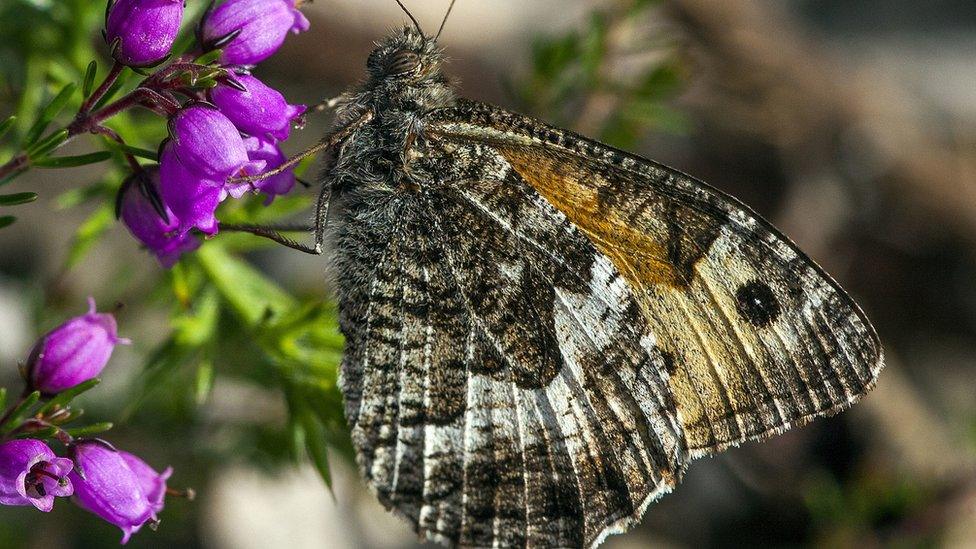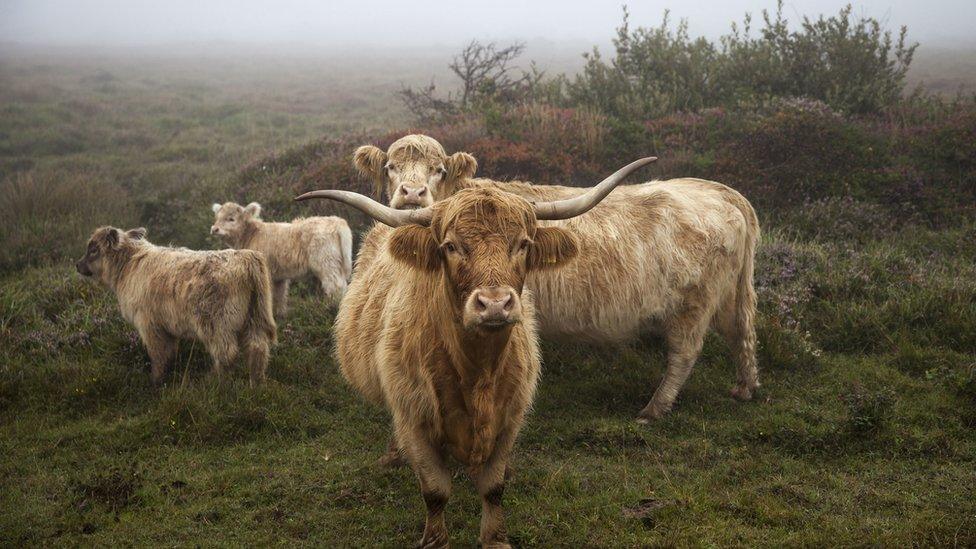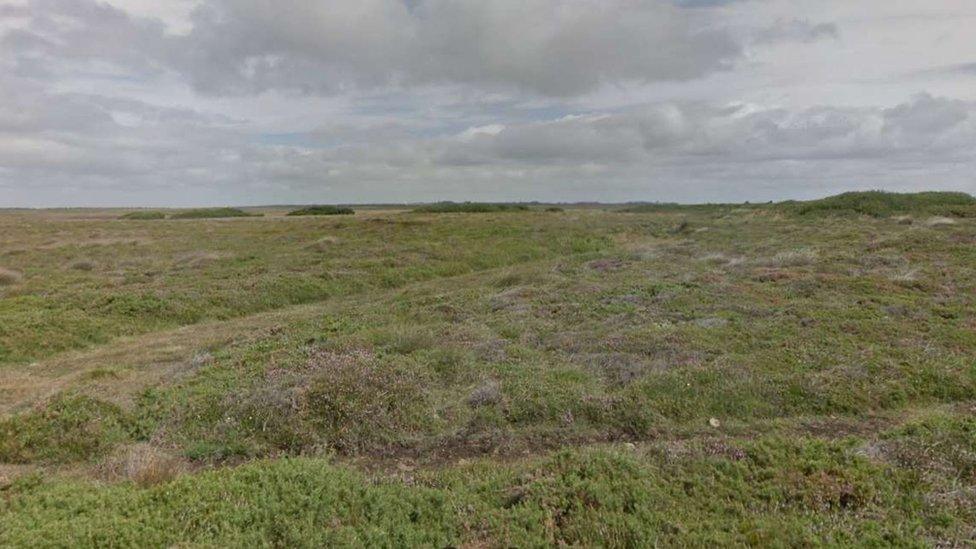Rare wildlife to benefit from £350k Cornish reserve project
- Published

Rare coastal lichens, wildflowers and butterflies are being supported through the conservation
Flowers and butterflies are amongst wildlife set to benefit from a £350,000 project at a Cornish reserve.
The project, funded by Natural England, aimed to help wildlife recover across the Lizard National Nature Reserve, leaders said.
Rare coastal lichens, wildflowers and butterflies would be supported through the conservation, they added.
The National Trust is undertaking work including heathland burning and cutting of firebreaks, aiming to boost plants.
Seth Jackson, National Trust project manager, said the funding would help protect species and microhabitats, and link the whole landscape together.
He said: "Working closely with tenants, graziers and the local community will ensure a joined-up and long-term sustainable approach to habitat management.
"Here on the Lizard, despite the wonderful landscape and the rich biodiversity it supports, we are not immune to the pressures that climate warming and habitat change bring, and many rare species are struggling."

The Lizard has been described as "one of the most exciting lowland coastal landscapes in the county"
Pony and cattle grazing would also help create a mosaic of different heathland habitats for wildlife, project bosses said.
Natural England species recovery programme manager Karen Shelley-Jones said: "We are delighted to be working with the National Trust on this project which epitomises what our species recovery programme is all about: delivering targeted bespoke action to reduce the risk of extinction for some of our most threatened and often overlooked species."
Andrew Byfield, technical adviser to the National Trust, added: "The Lizard is one of the most exciting lowland coastal landscapes in the county, with a great many nationally rare and threatened species.
"By addressing the fate of these threatened plants and animals that together make this place so special, the project is also protecting the whole landscape, and also supporting the more common ones."

Follow BBC Cornwall on X (formerly Twitter), external, Facebook, external and Instagram, external. Send your story ideas to spotlight@bbc.co.uk, external.
Related topics
- Published9 December 2022
